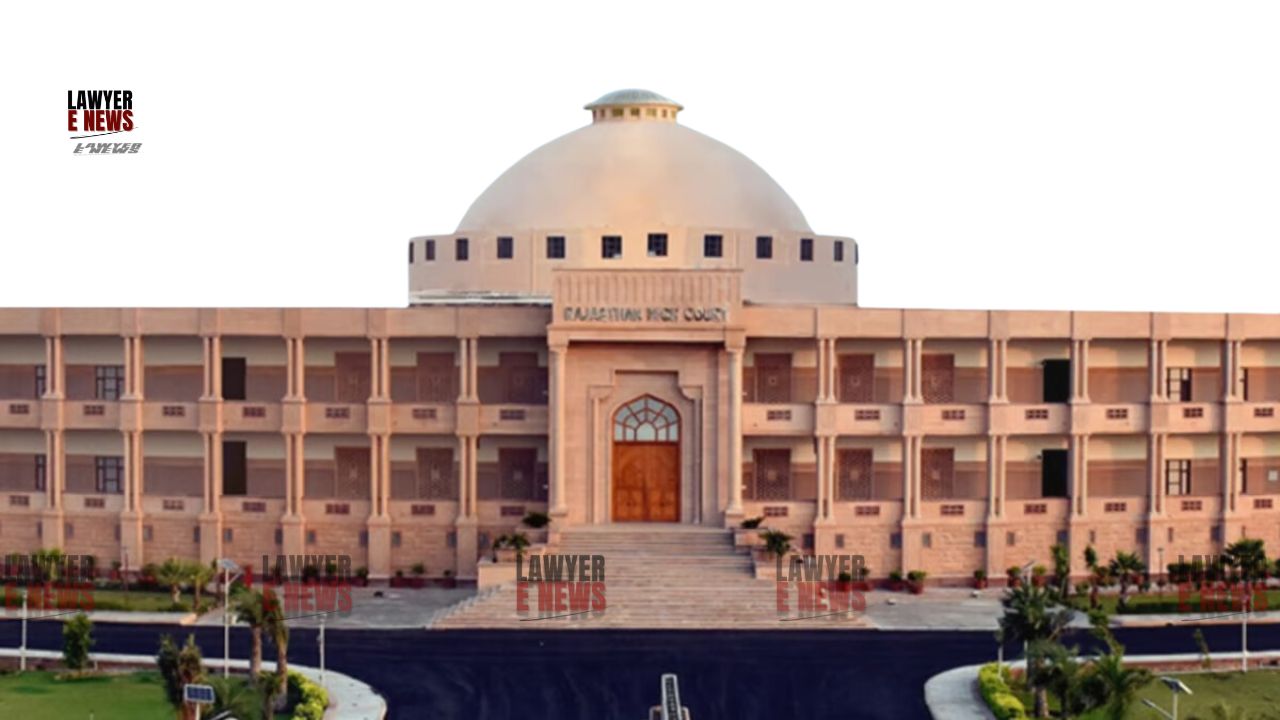-
by Admin
15 February 2026 5:35 AM



High Court of Rajasthan Quashes FIR Against Police Officers for Lack of Prior Approval Under Section 17A of Prevention of Corruption Act. On October 8, 2024, the High Court of Rajasthan at Jodhpur delivered a significant ruling in the case of Jagdish Kumar & Anr. vs. State of Rajasthan, quashing the FIR lodged against two police officers under the Prevention of Corruption Act, 1988. The Court emphasized the requirement of prior government approval before investigating public servants under Section 17A of the Act, thereby marking an important precedent in cases involving alleged corruption by public officials.
Key Judgment Highlight: Justice Rajendra Prakash Soni, who delivered the judgment, underscored the protective intent behind Section 17A. He stated, “No police officer shall conduct any enquiry or investigation into an offence alleged to have been committed by a public servant under this Act, where the alleged offence is relatable to any recommendation made or decision taken by such public servant in discharge of his official functions or duties without the previous approval of the Government."
The case revolves around a complaint lodged by Surendra Dhariwal, who was implicated in an investigation related to cheating in a competitive examination. On November 8, 2021, police officers Jagdish Kumar, an Assistant Sub-Inspector, and Ranidan Singh, a Circle Inspector, visited the complainant’s electronics shop in Delhi, allegedly confiscating cash and electronic devices while arresting him. Dhariwal later accused the officers of demanding bribes and threatening him with false cases.
The complaint resulted in the registration of FIR No. 14/2022 on January 18, 2022, under Section 7 of the Prevention of Corruption Act, 1988, and relevant sections of the Indian Penal Code. However, the officers contended that the FIR was illegal as it was filed without the prior sanction of the government, as mandated by Section 17A of the Prevention of Corruption Act, 1988, which was amended in 2018.
The primary legal issue was whether the investigation initiated against the petitioners was valid without prior approval from the competent government authority, as required by Section 17A.
The petitioners argued that Section 17A required mandatory government approval before any inquiry or investigation could commence against public servants in cases arising out of actions performed in the discharge of their official duties. They relied on the Supreme Court's decision in Yashwant Sinha vs. CBI and other relevant judgments to support their claim that no investigation could be initiated without such approval.
On the other hand, the prosecution argued that the offense in question did not require prior approval, as it was an act of personal misconduct unrelated to their official functions.
The High Court ruled in favor of the petitioners, holding that the FIR was void ab initio due to the lack of necessary prior approval under Section 17A. The Court explained that while Section 17A serves to protect public officials from frivolous accusations, it also includes an exception for on-the-spot arrests during the commission of an offense. However, since no such arrest was made in this case, the investigation against the officers could not proceed without government approval.
The Court specifically noted that the demand for gratification was not part of the public servants’ official functions, and thus, any investigation without the required sanction was invalid.
The judgment quashed the FIR and emphasized that the protection provided by Section 17A is integral to safeguarding public servants from undue harassment. Without the prior approval from the competent authority, no investigation or inquiry could be initiated under the Prevention of Corruption Act.
Date of Decision: October 8, 2024
Jagdish Kumar & Anr. vs. State of Rajasthan
